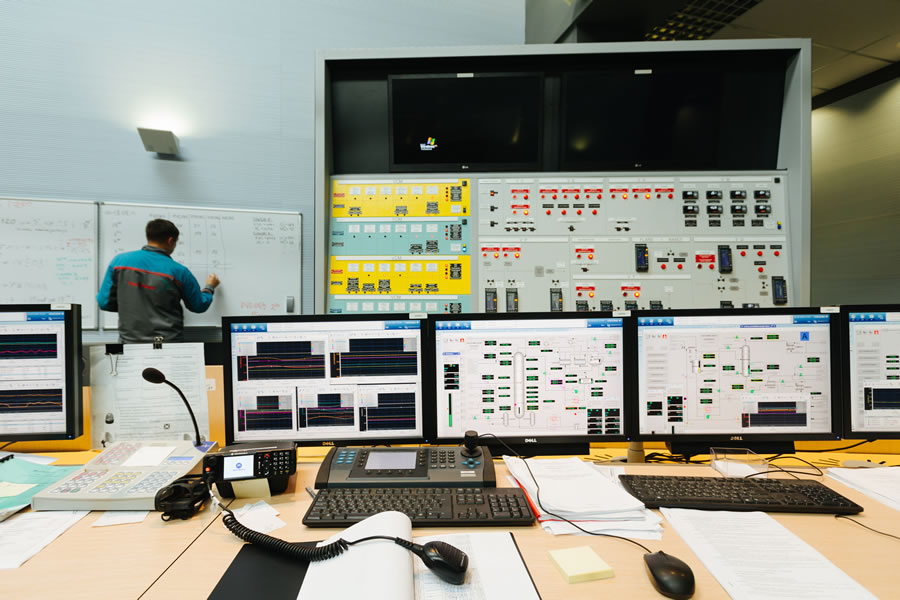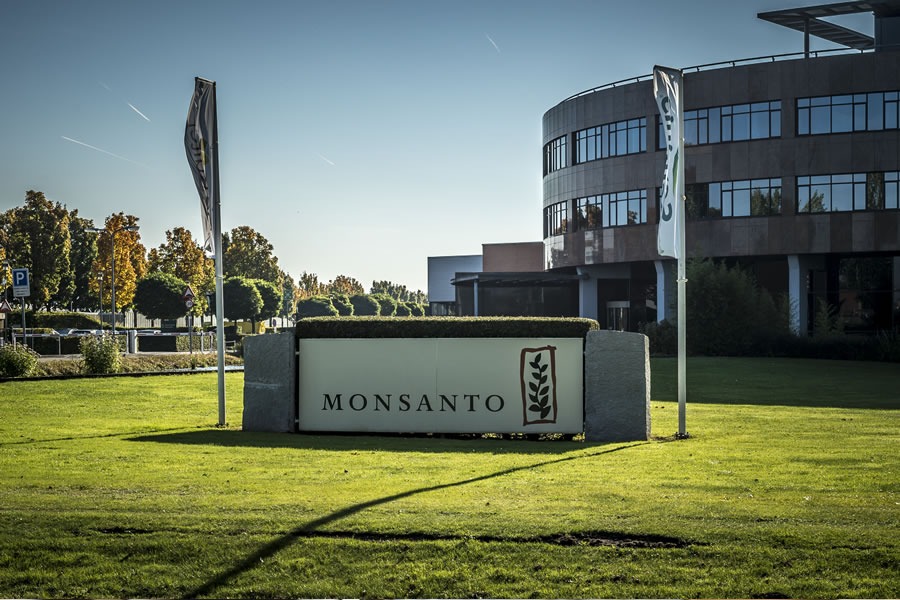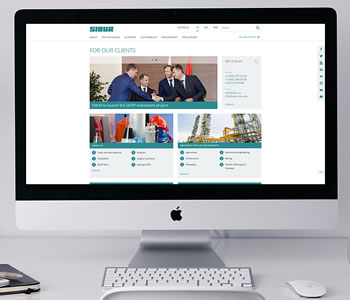At the annual congress of the European Association of Chemical Distributors (Fecc) held in June in Warsaw, digitalisation that was the hot word. According to the congress papers, each and every chemical company today has much room for introducing more effective ways of using data for the benefit of each company’s own business and that of its clients.
Digitalisation drivers
As was concluded at the congress, the industry has been increasingly leveraging the digital experience of other industries and searching for its own innovative solutions. This drive is supported by the natural pursuit of organic growth, as going digital offers greater internal effectiveness. But what are other reasons?
Millennials are also nicknamed the “thumb tribe”, as they believe smartphones can be used for solving most of their problems.
Baby boomers (born in 1943–1963) are retiring and have already been replaced by Generation X (1963–1984). These people are better prepared for change, tech savvy and willing to keep learning new things.
First, consumers are changing. Baby boomers (born in 1943–1963) are retiring and have already been replaced by Generation X (1963–1984). These people are better prepared for change, tech savvy and willing to keep learning new things. In addition, Generation Y, also known as Millennials (1984–2000), are hard on the heels. They are also nicknamed the “thumb tribe”, as they believe smartphones can be used for solving most of their problems. Neville Prior, Fecc president and board chairman of Cornelius Group, a European distributor of chemicals, believes that, to secure sustainable growth, the industry should be better aware of what new consumers need. In this context, ditigalising the sales function seems to be the most easy-to-understand process drawing on the experience of e-commerce titans such as Amazon and Alibaba.
Second, chemical companies see their workforce changing too. “For Millennials, unlike Generation X, a satisfying workplace is even more important than money”, said Jo Stephenson, non-executive director of Cornelius Group. “The wishes of our employees are changing. They are looking for more flexibility, a better work-life balance and high-tech solutions. All of these are coming to the fore. And our industry needs to adapt further to the current trends”. A solution could be found in, for example, digital systems that improve working conditions, reduce information load or the number of operations performed.
Сustomers want to buy products fr om companies with a transparent environmental and social agenda.
Third, the chemical industry is facing more and more pressure in terms of interacting with communities and society in general. According to Neville Prior, both industrial customers and the general public want to buy products from companies with a transparent environmental and social agenda. This is wh ere digital technologies give more opportunities by enhancing reliability of production processes and enabling a more transparent performance. Yet, according to Mr Prior, to be perceived as the best, businesses should have a natural desire to lead the pack in morals and ethics coming from companies themselves.
Obstacles to digitalisation
According to Deloitte’s research on digital transformation published in early 2017, the pace of digital adoption in the sector has been lackluster as top managers of many companies are still not convinced of the advantages offered by the digital agenda. They are interested in new technologies but still remain cautious.
Deloitte lists a whole bunch of barriers to digital transformation. Firstly, most of the responsibility to execute digital initiatives currently resides with IT departments. In this context, many executives believe that individual business units or functions should take ownership. Experts believe that it would make sense to expect changes in this area and to engage more employees in the process.
Besides, large-scale digital initiatives require high transparency and appropriate workforce training and development. They should be made clear to both employees and clients to motivate them to introduce innovations. It means that their practical application should be accompanied with adequate outreach initiatives, which require extra efforts.
And, finally, as digital solutions are employed, cyber security is starting to play a critical role. Fecc also says that the more widespread digital transformation becomes, the more hackers are trying to get access to confidential data. This issue is addressed by both businesses and authorities. For example, May 2018 saw the enactment of the EU General Data Protection Regulation (GDPR). With respect to chemical industry, this regulation will apply to online trade and to the areas involving collection of clients’ personal data. Companies will have to rethink their security systems.
How does digital work?
Albeit a conservative industry, some chemical enterprises are already experimenting with a range of digital levers. E-commerce has certainly grown into one of the key instruments to buy and sell products and related logistical services. Yet a greater potential resides in big data solutions designed to manage massive data arrays incoming at high speed. It can be analysed to eliminate gaps in internal processes, improve product and service quality and to forecast business development scenarios, demand, supply and pricing trends.
Deloitte's recipe is as follows: start with boosting basic operational processes with the latest digital technologies to provide real-time visibility on as many performance metrics as possible. For example, The Dow Chemical Company began using predictive models at an enterprise level back in 2012. Complex mathematical models analyse every aspect of business and facilitate strategy adjustments. At the same time, technologies help solving local tasks, such as analysing exchange rates on an ongoing basis to ensure effective raw material procurement.
SIBUR is also taking major steps to digitalisation. One of the first moves was to create a platform for managing end-to-end business processes with SAP solutions. Having completed the mission, we are now running projects to digitalise certain lines of business. According to Vasily Nomokonov, SIBUR’s Executive Director, the company is running 50 pilots, including robotics and virtual reality projects. For example, robots are being tested to process paperwork. They initiate requests to send correspondence, reconcile scanned documents with transaction details and process contracts by selecting the relevant signatory and printing contracts. Another example is the 3D model pilot developed at the Tomsk site to create a simulator teaching how to repair compressors.
SIBUR is also taking major steps to digitalisation.
At the enterprise level, a special Advanced Process Control (APC) system is being introduced. This is a wide variety of automation systems designed to enhance production processes by leveraging new regulation mechanisms, technologies based on predictive models, etc. The first APC systems were launched at SIBUR in early 2015 making it possible to analyse the practical impact now. Some of the positive results include lower information load on operators (with the number of signals to be monitored reducing by 5 to 10 times), better instrumentation adjustment, automatic load balancing in parallel plants subject to feedstock availability and technical condition of equipment, manufacturing of products with a stable content of impurities meeting the specified thresholds.
Digital technologies are bound to play a more pronounced role for chemical companies, than they do now, across a variety of aspects starting from improving production processes to enhancing company perception.
Big data projects are also on our agenda. They have helped identify ways to improve operations at the Denisovka railway station used to ship products from SIBUR’s Tobolsk site. At the moment, the station is under increased load, as there is a flow of supplies going through the station as part of the ZapSibNeftekhim construction project. Bid data is also used to boost BOPP film resistance to tearing, achieve optimum efficiency of ethylene oxide catalysts (used to produce brake fluids, ethylene glycols), introduce online advisers at the production sites of expandable polystyrene and 2-Ethylhexanol (used as feedstock for plasticiser production, and also as a solvent, defoamer, or a perfume ingredient), polyethylene terephthalate, and terephthalic acid used to make it. The objective is always to reduce feedstock consumption, streamline equipment performance, improve energy efficiency without compromising the high quality of end products. In other words, these efforts contribute to both boosting operational excellence and satisfying customers.
Experts say there is one more dimension of digitalisation used to assess the capability of creating radically new products or services. For example, Monsanto, a US producer of, inter alia, herbicides and fertilisers, acquired Climate Corporation, a tech firm that designed an application that enables precision agriculture helping farmers make smart choices about when to plant, how much water to use, and when to harvest. It is also of cardinal importance to amplify the function of legacy IT systems with state-of-the-art digital technologies for more engaging customer relationships. For instance, The Linde Group, a world leading supplier of industrial, food grade and medical gases, focused on developing a web-based business application to provide real-time access to customer data. This helped to reduce time needed to service customer requests.
Monsanto acquired tech firm that designed an application that enables precision agriculture helping farmers make smart choices.
Digital technologies are bound to play a more pronounced role for chemical companies, than they do now, across a variety of aspects starting from improving production processes to enhancing company perception. The general digitalisation trend is towards enhancing business effectiveness and efficiency. This is expected to make the entire market more stable in the digital future.
Download PDF










What are, according to Deloitte, the enablers for augmenting digital strategies of chemical companies?
1. Build a robust transformation process, starting with a clear digital enterprise strategy. This requires addressing several questions: what is the most valuable ambition to be gained from embracing digital trends; what new technologies are required to foster business innovation; what exactly could accelerate digitalisation?
2. Enable enterprise-wide scalability of digital. Embed continuous innovation into a culture that supports new ideas and encourages learning. Many employees are not ready to embrace digitalisation, but harnessing digital revolution requires companies to transform their corporate cultures.
3. Find a structured approach to identify risks. Many chemical enterprises underestimate cyber threats, while cyber attacks become more frequent and sophisticated.
4. Pay special attention to robotics and the blockchain technology to optimise the procurement, supply, IT and other functions.